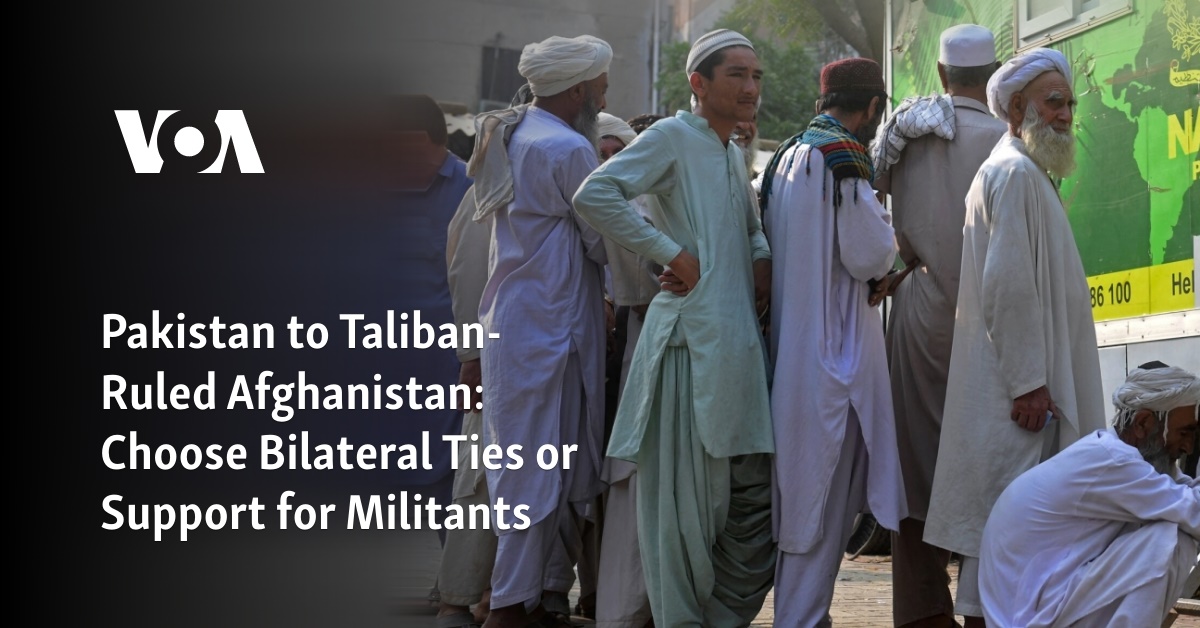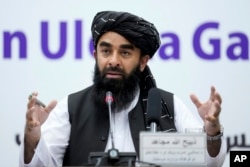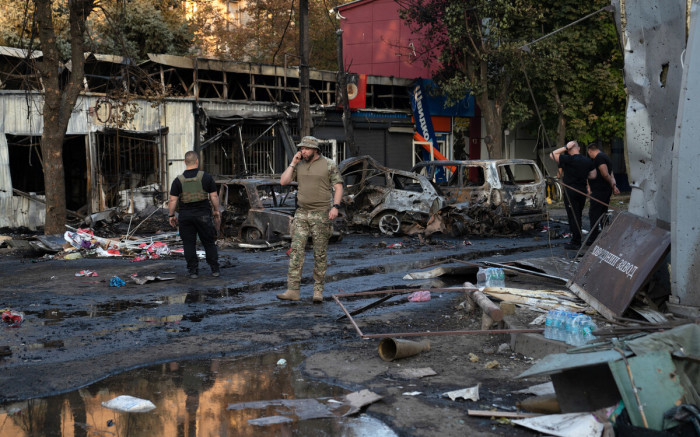
Pakistan’s caretaker Prime Minister Anwar-ul-Haq Kakar demanded Wednesday that the Taliban government extradite fugitive militants who are sheltering in Afghanistan and plotting terrorist attacks against his country.
Kakar told a nationally televised news conference that his country had experienced “a 60% increase in terror incidents and a 500% rise in suicide bombings” since the Taliban returned to power in Kabul two years ago, killing nearly 2,300 Pakistanis.
He said his government’s crackdown on deporting all undocumented foreigners, primarily 1.7 million Afghans, to their countries of origin stemmed from the sharp increase in nationwide terrorist incidents, and he claimed foreigners without legal status are linked to those “fueling terrorism and instability in Pakistan.”
The prime minister noted that 15 Afghan nationals were among the suicide bombers, while 64 Afghans were killed fighting Pakistani security forces this year. He asserted the bloodshed was being carried out by “Tehrik-i-Taliban Pakistan, or TTP, terrorists” from their bases in Afghanistan. The Pakistani leader referred to an ideological offshoot and close ally of the Afghan Taliban, commonly known as the Pakistani Taliban.
Kakar said that despite repeated assurances, de facto Afghan authorities failed to halt TTP-led cross-border attacks effectively. “Instead, clear evidence of enabling terrorism [by Afghan Taliban members] also emerged in some instances.” He did not elaborate.
He said Pakistan has persistently shared details and a list of wanted militant leaders with Afghan authorities through high-level multiple official engagements and even asked them “bluntly to choose between Pakistan and the TTP.” But Kabul did not deliver on its counterterrorism pledges, he added.
Chief Taliban spokesman Zabihullah Mujahid rejected Kakar’s allegations, saying his government is not responsible for maintaining peace in Pakistan, nor is it behind the insecurity in the neighboring country.
“They should address their domestic problems instead of blaming Afghanistan for their failure,” Mujahid said in a statement he shared via X, formerly known as Twitter. “The Islamic Emirate does not allow anyone to use the territory of Afghanistan against Pakistan,” he said, using the Taliban administration’s official title.
Mujahid stated that Kabul “seeks good relations” with Islamabad in line with its policy of “non-interference” in the affairs of other countries and the Pakistani side should not doubt its “sincere intentions.”
Taliban leaders have decried the crackdown on Afghan migrants in Pakistan as “inhumane.” While urging the neighboring country to reverse the plan, Kabul government officials have warned of unspecified consequences.
Kakar said Wednesday that more than 250,000 Afghans had voluntarily returned home since his government began implementing the “repatriation plan” a month ago. He argued that the plan is aligned with Pakistani immigration laws but reassured Afghans awaiting relocation or resettlement in the United States and several other Western nations they would not be evicted.
The U.S.-led Western troops chaotically withdrew from Afghanistan in August 2021 when the then-insurgent Taliban reclaimed power from an American-backed government. The troop withdrawal also evacuated tens of thousands of vulnerable Afghans, including former government officials, human rights defenders, journalists, and women activists.
Late last month, U.S. officials shared with Pakistan a list of 25,000 Afghans who fled the Taliban takeover, fearing retribution and abuses for their association with Western militaries during their presence in the country for almost two decades.
Pakistani officials later said the U.S. had withdrawn the list after Islamabad found it “flawed and incomplete” and promised to resubmit it after addressing the concerns.
On Tuesday, the U.S. State Department spokesperson renewed its call for Pakistan and other countries to respect “the principle of non-refoulement” and uphold their respective obligations in treating refugees and asylum-seekers.
“We strongly encourage Afghanistan’s neighbors, including Pakistan, to allow entry for Afghans seeking international protection and to coordinate with the appropriate international humanitarian organizations,” said Vedant Patel, the principal deputy spokesperson.
The United Nations and other global refugee agencies also have urged Islamabad to suspend the deportation plans, citing an already dire humanitarian crisis in impoverished Afghanistan, where two-thirds of the population needs some kind of assistance after years of conflict and repeated natural disasters.







Recent Comments